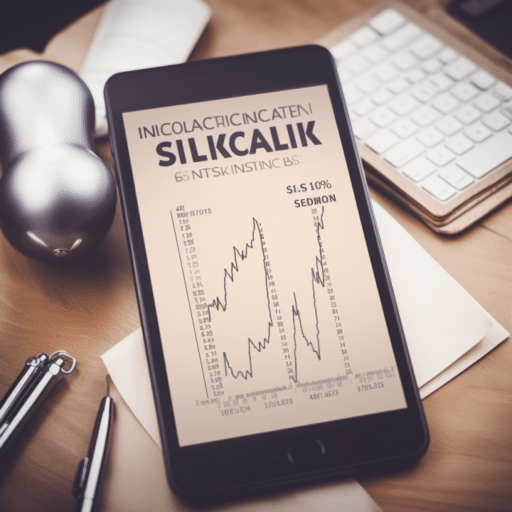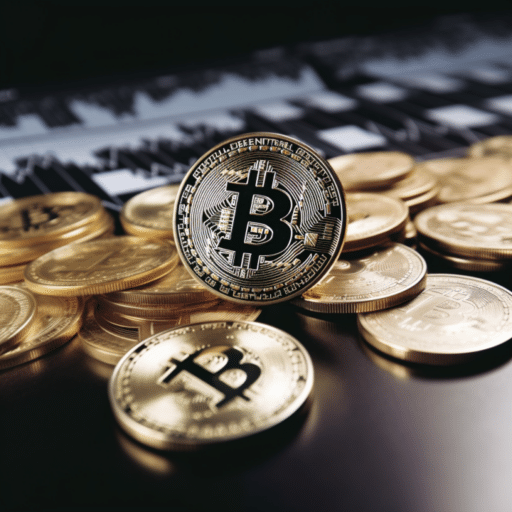With the rising interest in alternative investments, gold alternatives have been gaining popularity among investors.
As traditional investments become more unpredictable and volatile, diversifying one’s portfolio with alternative options can be crucial to achieving long-term financial goals.
If you want to invest as an expat or high-net-worth individual, which is what I specialize in, you can email me (advice@adamfayed.com) or use WhatsApp (+44-7393-450-837).
We don’t endorse any of the investments below. They are merely alternatives to gold.
What are the top five gold alternatives?
There are several alternatives to gold that investors can consider. Here are the top five gold alternatives:
Silver
Often referred to as the “poor man’s gold,” silver has been used as a form of currency and a store of value for thousands of years. Like gold, silver is a precious metal that is widely recognized and easily tradable. However, it is typically cheaper to acquire than gold, making it an attractive option for investors on a budget.
Cryptocurrencies
Digital currencies like Bitcoin and Ethereum have gained popularity as alternative investments in recent years. While they are not physical assets like gold or silver, cryptocurrencies can be used as a store of value and a hedge against inflation. However, they are much more volatile than traditional assets and require a high tolerance for risk.
Real Estate
Investing in real estate can provide a steady stream of income through rental properties or long-term appreciation of property values. Unlike gold, real estate is a tangible asset that can be leveraged and has practical use in the economy.
Art
Art is a unique alternative investment that can appreciate in value over time. However, investing in art requires a keen eye for quality and a willingness to research the market. Art is also illiquid and may be difficult to sell in a timely manner.
Natural Resources
Natural resources like oil, gas, and timber have intrinsic value and can provide a hedge against inflation. These assets are typically purchased through commodity futures contracts or exchange-traded funds (ETFs) that track the price of the underlying commodity. However, natural resources can be subject to supply and demand shocks that can affect their value.

Investments in natural resources can be purchased through commodity futures contracts.
Why would someone want to consider investing in gold alternatives?
There are several reasons why someone might consider investing in gold alternatives:
Diversification
Investing in gold alternatives can help diversify an investment portfolio beyond traditional stocks and bonds. Diversification can reduce overall risk and provide a hedge against economic uncertainty.
Inflation hedge
Gold alternatives can act as a hedge against inflation, which erodes the purchasing power of the traditional currency. Some gold alternatives, such as natural resources and real estate, may even increase in value during periods of inflation.
Potential for high returns
Gold alternatives can provide the potential for high returns, especially when compared to traditional investments such as savings accounts and government bonds. For example, cryptocurrencies have seen explosive growth in recent years, with some investors realizing significant gains.
Tangible assets
Many gold alternatives, such as silver and natural resources, are tangible assets that have intrinsic value beyond their use as investments. This can provide an additional layer of security and stability to an investment portfolio.
Portfolio customization
Investing in gold alternatives can provide an opportunity to customize an investment portfolio to suit individual goals and risk tolerance. Different gold alternatives may be more or less appropriate for different investors depending on their personal financial situation and investment objectives.
How do gold alternatives compare to investing in gold?
When considering gold alternatives, it is natural to compare them to investing in gold.
While both options can provide a hedge against economic uncertainty and inflation, there are some important differences to consider.
Firstly, gold is a physical asset that has been recognized as a store of value for thousands of years. It has a proven track record of maintaining its value over time and is widely recognized and easily tradable.
On the other hand, gold alternatives can be more varied in their form and function. They may be tangible assets like silver or real estate, or digital assets like cryptocurrencies.
Secondly, the price of gold tends to be less volatile than many gold alternatives. This can make gold a more stable investment option, particularly for those with a lower risk tolerance.
However, gold alternatives may offer greater potential for high returns, particularly in the short term.
Thirdly, investing in gold alternatives can provide greater diversification opportunities than investing solely in gold.
While gold may be a safe haven during times of economic uncertainty, there are other factors that can affect the performance of different asset classes.
By investing in a variety of gold alternatives, investors can reduce overall portfolio risk and improve the potential for long-term returns.
Are gold alternatives more or less volatile than gold?
Gold alternatives can be more or less volatile than gold, depending on the specific alternative investment.
For example, silver tends to be more volatile than gold, with larger price swings over shorter periods of time.
On the other hand, real estate is typically less volatile than gold, with more stable long-term returns.
Cryptocurrencies, another gold alternative, are known for their high volatility, with prices often fluctuating by double-digit percentages in a single day. This can make them a high-risk, high-reward investment option.
Natural resources, such as oil and gas, can also be volatile due to fluctuations in supply and demand.
However, they may offer greater protection against inflation than gold, as their prices are often tied to commodity prices which can increase during periods of inflation.

Gold alternative investments can provide a hedge against inflation.
Can gold alternatives provide a hedge against inflation?
Yes, it can provide a hedge against inflation, similar to gold. Inflation erodes the purchasing power of traditional currency over time, but tangible assets like gold alternatives can maintain their value or even appreciate in value during periods of inflation.
For example, natural resources like oil and gas tend to rise in value during periods of inflation, as the demand for these commodities increases.
Similarly, real estate can provide a hedge against inflation, as property values tend to increase over time and can keep pace with inflation.
Cryptocurrencies are another gold alternative that can potentially provide a hedge against inflation. While the value of cryptocurrencies can be volatile in the short-term, some investors view them as a hedge against inflation due to their finite supply and lack of government control.
Overall, gold alternatives can be an effective way to protect against inflation, especially when combined with a well-diversified investment portfolio.
However, it is important to carefully research and understand the potential risks and rewards of each gold alternative before making any investment decisions.
How do I determine which gold alternative is right for me?
Determining which gold alternative is right for you will depend on several factors, including your investment goals, risk tolerance, and financial situation.
Here are some key factors to consider when evaluating gold alternatives:
- Investment goals: What are your investment objectives? Are you looking for long-term growth, a stable source of income, or a hedge against inflation? Understanding your investment goals will help you determine which gold alternative is best suited to your needs.
- Risk tolerance: How much risk are you comfortable taking on? Gold alternatives can range from relatively stable options like real estate to high-risk investments like cryptocurrencies. It’s important to evaluate your risk tolerance and choose a gold alternative that aligns with your comfort level.
- Time horizon: How long are you planning to hold your investment? Some gold alternatives, such as natural resources, can be more volatile in the short-term but may provide greater returns over the long-term. Understanding your time horizon can help you choose a gold alternative that aligns with your investment timeline.
- Investment size: How much money are you planning to invest? Some gold alternatives, like real estate, may require a significant upfront investment, while others, like silver or certain cryptocurrencies, may be more accessible to investors on a tighter budget.
- Market conditions: What is the current economic and market environment? Certain gold alternatives may perform better than others depending on the prevailing market conditions. For example, real estate may be a good investment during a period of low interest rates, while natural resources may perform well during a period of inflation.
Are there any tax implications to investing in gold alternatives?
Yes, there can be tax implications to investing in gold alternatives, just as there are with any investment. The specific tax implications will depend on the type of gold alternative and how it is held.
For example, if you invest in real estate, you may be subject to capital gains tax when you sell the property. Similarly, if you invest in natural resources through a commodity ETF or futures contract, you may be subject to capital gains tax when you sell your investment.
Investing in cryptocurrencies may also have tax implications, as the IRS treats cryptocurrencies as property for tax purposes.
This means that buying and selling cryptocurrencies can trigger capital gains taxes, and you may be required to report your cryptocurrency holdings on your tax return.
If you invest in physical gold or silver, you may also be subject to taxes when you sell your investment, depending on your location and the local tax laws.
For example, in the United States, sales of physical gold and silver are subject to state and local sales tax in some states.
It’s important to consult with a tax professional or financial advisor to understand the specific tax implications of investing in gold alternatives.
What are some potential risks associated with investing in gold alternatives?
Investing in gold alternatives comes with potential risks, just like any investment. Here are some of the potential risks associated with investing in gold alternatives:
- Volatility: Some gold alternatives, such as cryptocurrencies or natural resources, can be highly volatile and subject to large price swings in short periods of time. This can make them high-risk investments that are not suitable for all investors.
- Illiquidity: Some gold alternatives, such as real estate or art, can be illiquid investments that are difficult to sell quickly. This can be a problem if you need to access your funds in a hurry.
- Regulatory risks: Some gold alternatives, particularly cryptocurrencies, may be subject to regulatory risks. Changes in laws and regulations can have a significant impact on the value and viability of these investments.
- Lack of transparency: Some gold alternatives, particularly private equity or hedge fund investments, may lack transparency. This can make it difficult to understand the underlying investment and evaluate its potential risks and rewards.
- Counterparty risk: Some gold alternatives, such as commodity ETFs or futures contracts, may be subject to counterparty risk. This means that if the counterparty (i.e. the company or institution holding your investment) defaults, you could lose some or all of your investment.
- Operational risks: Some gold alternatives, such as cryptocurrencies or rare coins, may be subject to operational risks. This includes the risk of theft, fraud, or technical issues that can result in the loss of your investment.

Cryptocurrency investments are also a popular gold alternatives.
Can gold alternatives be used as a diversification strategy in my investment portfolio?
Yes, gold alternatives can be used as a diversification strategy in an investment portfolio. Diversification is investing in various asset classes, sectors, and geographies to reduce overall risk and improve the potential for long-term returns.
By including gold alternatives in an investment portfolio, investors can potentially reduce overall portfolio risk and improve diversification.
Gold alternatives can provide diversification in a number of ways.
For example, investing in real estate can provide exposure to a different sector of the economy, while investing in natural resources can provide exposure to commodities that are not correlated to traditional stock and bond investments.
Cryptocurrencies can provide exposure to a completely different asset class that is not tied to traditional economic factors.
Additionally, gold alternatives may perform differently than traditional assets like stocks and bonds, providing potential portfolio diversification benefits.
For example, during periods of economic uncertainty or inflation, gold, and gold alternatives may perform well while traditional assets may decline.
Can investing in gold alternatives be profitable in the long term?
Investing in gold alternatives can potentially be profitable in the long term, but it is important to understand that all investments come with risk, and past performance is no guarantee of future results.
Some gold alternatives, like real estate or natural resources, may provide steady income or appreciation over time, while others, like cryptocurrencies or certain commodities, may provide significant short-term gains.
However, these investments can also be highly volatile and subject to significant risks, including regulatory risks, counterparty risks, and price volatility.
It is also important to note that the performance of gold alternatives can be affected by a variety of economic and market factors, including inflation, interest rates, and global economic conditions.
Therefore, conducting thorough research and considering the potential risks and rewards before making any investment decisions is important.
While investing in gold alternatives can potentially be profitable in the long term, it is important to approach these investments with caution and maintain a diversified investment portfolio to manage overall risk.
Investors should consult with a financial advisor to determine the most appropriate gold alternatives for their investment goals and risk tolerance.
Pained by financial indecision?

Adam is an internationally recognised author on financial matters with over 830million answer views on Quora, a widely sold book on Amazon, and a contributor on Forbes.



